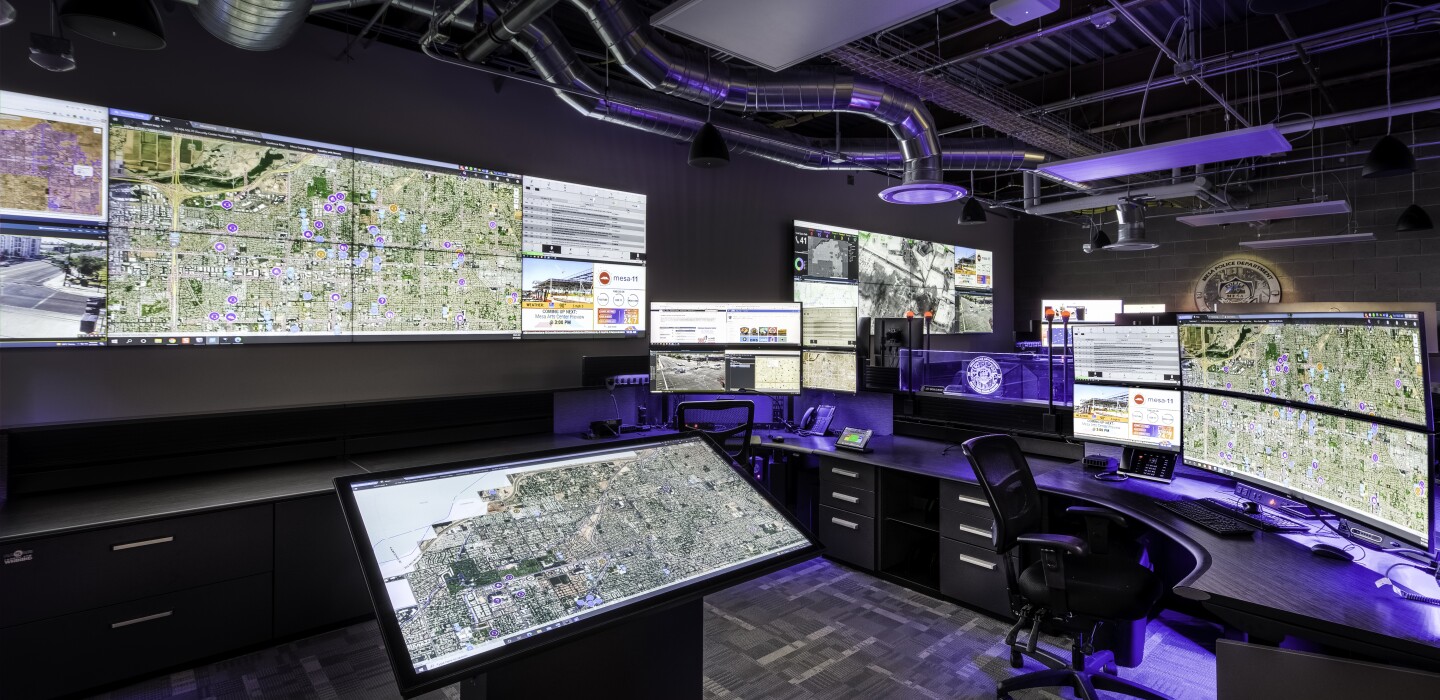
Virginia AG Looking for Ways to Use Tech to Fight Crime
Local law enforcement has become somewhat adept at using technology to help catch criminals, but there is a lot of room for improvement.
The Virginia Office of the Attorney General has partnered with researchers from Virginia Commonwealth University to study the role of police technology in violent crime prevention and how best to use data on trends to reduce crime.
Police agencies nationwide are struggling with staffing — for various economic and social reasons. In fact, most agencies are down anywhere from 10 to 30 percent from what would be considered ideal levels, according to Dr. Will Pelfrey, a professor of the university’s Homeland Security and Emergency Preparedness Program.
The Virginia Attorney General wants to use the intelligence gleaned from the study — as well as technology funded through criminal forfeitures and seizures — to improve crime-fighting efficiencies and overcome the lack of staffing.
Many of the technologies in question are already in place — like toll booth cameras, license plate readers, and privately owned security cameras — but could be expanded to better effect.
Police agencies not only need access to the data from these cameras, but they need it in real time to have an edge in fighting crime. It’s common for police to search the neighborhood for cameras that might have captured images or video of a crime that could help an investigation, but that’s after the fact. What’s ideal is to have cameras in place that can be quickly monitored by law enforcement to catch someone in the act.
“Routing camera images in real time from a bank to a police agency, that’s hard to do because those are closed systems that aren’t built for broadcasting signals, they’re built for recording signals kept internally,” said Pelfrey.
Toll booth cameras, for instance, have always been available to police, but only after the fact. If they had real-time access to those cameras, they could, when alerted to a crime such as a child abduction, monitor them and locate perpetrators passing through the toll booths.
“Without a real-time crime center an agency is going to have to have individual arrangements,” Pelfrey said. “There are police who get to know a convenience store owner and have an agreement with them to access camera footage, but that solves few crimes.”
In Mesa, Ariz., the police department deployed its real-time crime center in 2022 and is already confident that it has a leg up on criminals. The center gives police the ability to listen in on 911 calls in real time and get a visual of the scene from the nearest camera. From there, they can track a subject by double clicking on cameras, effectively following the subject remotely.
“If someone is running from us and going north or south or whatever, our people know which camera to go to,” Sgt. Matt Kuntz of the Mesa, Ariz., Police Department recently told Emergency Management. “Then, visual tracking puts up a square on a screen and indicates the location. Double click on that square and it pushes you to the next camera. They can’t outrun the double click.”
Atlanta, meanwhile, has Connect Atlanta, one of the largest public-private surveillance networks in the nation with around 19,000 cameras — some community owned and some owned by the police department. Each camera is represented by an icon on a map and when an incident occurs in proximity of one of them, officers at the real-time crime center can see who has an asset in that vicinity and request footage. That footage can be streamed to computers, phones or mobile data terminals.
“Having access to these additional resources helps our police department expedite criminal investigations and apprehend offenders more quickly,” Greg McNiff, vice president of programs for the Atlanta Police Foundation, told Emergency Management.
These crime centers are expensive and require arrangements with state agencies and other cities, but officials say the extra cost and work are worth it.
“If police can create a real-time crime center to pull in all this information in real time, then there can be sworn officers or civilian employees who can monitor the technology,” Pelfrey said. “They can work with other agencies and say, ‘Here’s what’s going on here’s where this bad guy is headed, you can catch him here.”


Average Rating